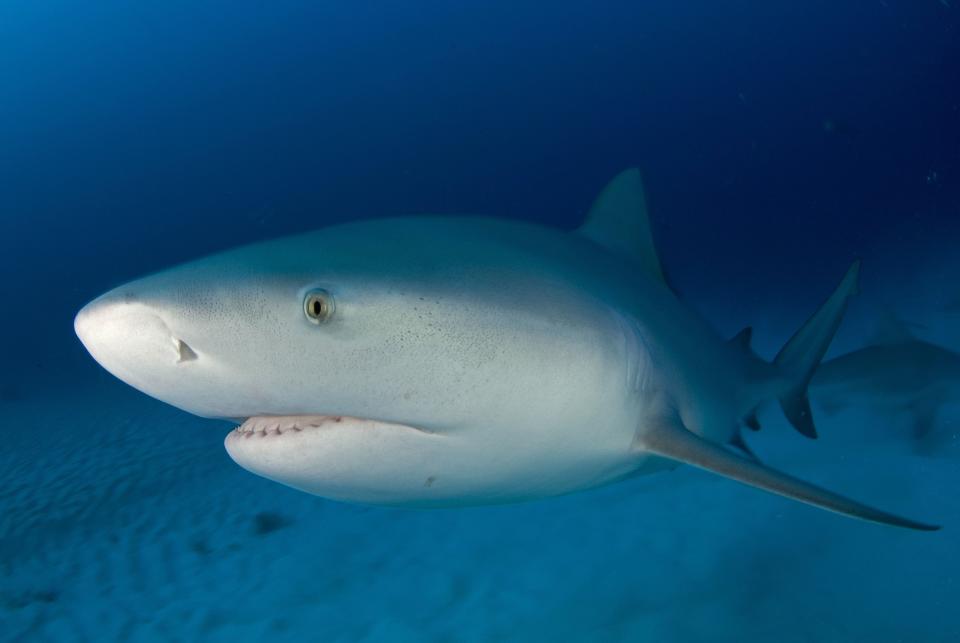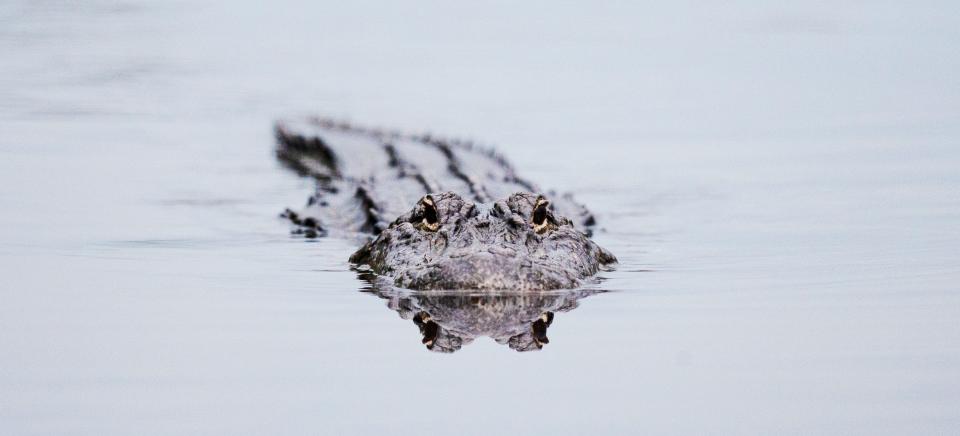The old adage 'it's better to be safe than sorry' applies to encountering a shark
Shark!
Hopefully that's something you will never hear screamed by someone at your favorite beach in Florida. There is a very good chance you never will.
According to the Florida Museum at the University of Florida, the chances of being bitten by a shark are very small (1:3.7 million) compared to other animal encounters, natural disasters, and ocean-side dangers. Many more people drown in the ocean every year than are bitten by sharks. The few bites that occur every year are an excellent indication that sharks do not feed on humans and that most bites are simply due to mistaken identity.
The fact is sharks are "out there" and it never hurts to take the "just in case" approach. We reached out to the Florida Fish and Wildlife experts and this is what they advised regarding sharks and reducing even further the odds of being bitten:

Always stay in groups since sharks are more likely to bite a solitary individual.
Do not wander too far from shore-this isolates an individual and places him or her far away from assistance.
Avoid being in the water during darkness or twilight hours when sharks are most active.
Do not enter the water if bleeding from an open wound or if menstruating-a shark's ability to smell blood is acute.
Wearing shiny jewelry is discouraged. When light reflects off shiny jewelry, it resembles the sheen of fish scales.
Avoid waters with known discharges or sewage and waters used for any type of fishing-especially if there are signs of baitfishes or feeding activity. Diving seabirds, which frequently feed on baitfishes, are good indicators of such activity.
While there are myths and anecdotes about dolphins saving humans from shark bites, the presence of dolphins does not indicate the absence of sharks-both often eat the same foods.
Tracking sharks near Florida: 1,400-pound great white shark Breton pings off the coast of Florida
Use extra caution when waters are murky.
Remember that sharks see contrast particularly well. Uneven tans and bright colored clothing may draw a shark's attention.
Refrain from excess splashing, as this may draw a shark's attention.
Do not allow pets in the water: their erratic movements may draw a shark’s attention.
Be careful when occupying the area between sandbars or near steep drop-offs-these are favorite hangouts for sharks.
Swim only in areas tended by lifeguards.
Do not enter the water if sharks are known to be present, and get out of the water if sharks are sighted.
Never harass a shark!
What about alligators?

Tips: If you encounter a gator: Sanibel attack: What can you do to avoid getting hurt by alligators?
What about bears?

Tips: If you encounter a bear: From screams to gunshots, how a Jacksonville zookeeper survived a horrific black bear attack
This article originally appeared on Fort Myers News-Press: Hew to avoid shark bites in Florida

